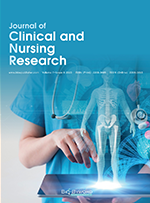Abstract
Objective: To investigate and analyze the effect of laparoscopic pelvic autonomic nerve-preserving radical resection of rectal cancer on urinary and sexual function. Methods: Cases of laparoscopic radical resection of rectal cancer in our hospital from April 2018 to April 2023 were selected, and 60 patients who met the requirements were included as research subjects. The patients were divided into an experimental group and a reference group by a doubleblind mechanism, with 30 cases in each group. The experimental group underwent laparoscopic pelvic autonomic radical resection, while the reference group underwent ordinary radical resection. The voiding function, urodynamics, sexual function, and blood indexes of the patients of both groups were compared. Results: The total incidence of voiding dysfunction in the experimental group was significantly lower than in the reference group (P < 0.05). Urodynamics such as abdominal leak point pressure (ALPP), maximum urethral pressure (MUP), maximum urethral closure pressure (MUCP), and functional urethral length (FUL) in the experimental group were significantly better than those in the reference group (P < 0.05). The incidences of erectile dysfunction and ejaculatory dysfunction in the experimental group were significantly lower than those in the reference group (P < 0.05). Before the surgery, there were no significant differences in the blood indexes such as C-reactive protein (CRP), cortisol (Cor), and pre-albumin (PA) between the two groups (P > 0.05); after the operation, the blood indexes of the patients in the experimental group were significantly better than those in the reference group (P < 0.05). Conclusion: Laparoscopic pelvic autonomic nerve-preserving radical resection of rectal cancer has lesser effects on urinary and sexual functions.
References
Zhang J, Li W, 2023, The Effect of Preserving the Left Colic Artery in Laparoscopic Radical Resection of Rectal Cancer on Gastrointestinal Function, Immune System, and Long-Term Prognosis of Patients with Rectal Cancer. Guizhou Medicine, 47(05): 705–707.
Chen Z, Tang R, Hu D, 2023, The Clinical Effect of Laparoscopic Low Rectal Cancer Radical Resection and Sphincter Preservation in Treating Patients with Common Rectal Cancer and Its Impact on Quality of Life. Chinese and Foreign Medical Research, 21(14): 153–156.
Wang J, Wang J, 2023, The Effect of Goal-Oriented Management of Brain Oxygen Saturation Monitoring on Early Cognitive Function After Laparoscopic Radical Resection of Colorectal Cancer Under General Anesthesia in the Elderly. China Medical Herald, 20 (04): 120–123.
Yuan Y, Guo M, Liao K, et al., 2022, Application Effect of CTA-Based Vascular 3D Visualization Technology in Patients Undergoing Laparoscopic Radical Rectal Cancer with Preserved Left Colic Artery. Medical Equipment, 35(24): 65–69.
Wang Z, Meng F, Zhang W, 2022, The Effect of Laparoscopic Radical Resection of Colorectal Cancer Combined with Postoperative XELOX Regimen in Treating Colorectal Cancer and its Impact on Serum CEA and CA-199 Levels. Practical Cancer Journal, 37(12): 2036–2039.
Cao G, Tian X, Li D, et al., 2022, Influence of Intraperitoneal Infusion of Raltitrexed on Postoperative Curative Effect, Quality of Life and Immune Function of Patients Undergoing Radical Resection of Colorectal Cancer. Chinese Prescription Drugs, 20(12): 112–114.
Song B, Li J, Chen L, 2022, Relationship Between Serum Levels of Hypoxia-Inducible Factor-1? and Brain-Derived Neurotrophic Factor and Postoperative Cognitive Dysfunction in Elderly Patients with Laparoscopic Radical Resection of Rectal Cancer Under General Anesthesia. World Compound Medicine, 8(09): 10–13.
Xie W, Wang X, Zhao K, et al., 2022, Effects of Natural Orifice Laparoscopic Radical Resection of Colorectal Cancer on Postoperative Pain, Inflammatory Response, Intestinal Barrier Function, and Health Economics Evaluation. China Medical Herald, 19(20): 96–99.
Li W, Chen X, 2020, Effect of Autonomic Nerve-Preserving Laparoscopic Radical Resection of Rectal Cancer on Sexual Function and Urodynamic Indicators of Male Patients. Journal of Practical Cancer, 35(09): 1505–1507 + 1511.
Jin D, Li Z, Gu X, et al., 2020, The Value of Pelvic Autonomic Monitoring (IMPAN) in Laparoscopic Radical Resection of Low Rectal Cancer. Fudan Journal (Medical Edition), 47(05): 669–678.
Yang D, Li L, Shao L, 2020, The Short-Term Curative Effect of Laparoscopic Radical Rectal Cancer with Pelvic Autonomic Preservation and the Impact on Patients’ Postoperative Urination and Gastrointestinal Function. Practical Cancer Journal, 35(05): 819–824.
Huang H, Yao L, Xie Y, et al., 2019, The Effect of Laparoscopic and Open Mid-Low Rectal Cancer Radical Resection Guided by Pelvic Autonomic Nerves on the Urinary Function of Patients. Journal of Armed Police Logistics College (Medical Edition), 28(06): 42–44.
Wang T, Zhang T, Chen J, et al., 2018, The Effect of Laparoscopic Pelvic Autonomic Nerve Protection Radical Rectal Cancer on Male Sexual Function in Patients with Middle And Low Rectal Cancer. Shanxi Medical Journal, 47(19): 2311–2313.
Liu Y, Zeng Z, Huang S, 2018, Effects of Laparoscopic and Open Pelvic Autonomic Nerve-Preserving Radical Resection of Rectal Cancer on Urinary and Sexual Function in Elderly Male Patients. Imaging Research and Medical Application, 2(12): 121–123.
Zhang H, Yang P, Lan H, et al., 2018, Study on the Effect of Laparoscopic Radical Resection of Low Rectal Cancer with Pelvic Autonomic Nerve as an Anatomical Marker on Postoperative Urination and Sexual Function in Male Patients. Colorectal and Anal Surgery, 24(01): 22–26.
